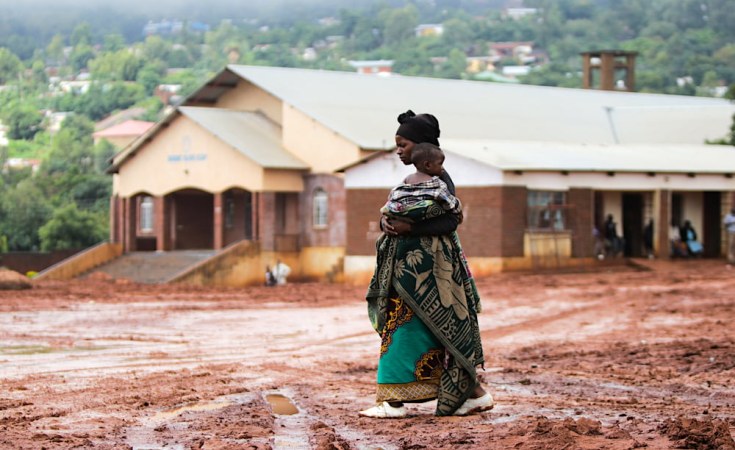Blantyre, Malawi — Authorities in Malawi have deployed excavators to help locate dead bodies believed to be trapped under the rubble after Cyclone Freddy destroyed houses two weeks ago. The cyclone, which also hit Mozambique and Madagascar, killed nearly 600 people in Malawi and left over 500,000 people homeless.
Charles Kalemba, Malawi's commissioner for the Department of Disaster Management Affairs, said besides finding bodies, the work would help clarify what was happening with cyclone damage. He told state radio Tuesday the move to use excavators follows reports from communities that blood is oozing on top of the rubble of destroyed houses.
Those reports are not true, he said.
"What we have noted is that actually it's not blood," Kalemba said. "The water is drying and because it was stagnant, normally you have green algae or red algae, so this is red algae."
Rashid White is a traditional leader for Nkulinga village, which was heavily affected by mudslide in the Blantyre. He told VOA that he believes many more bodies remain buried under the rubble because most of the people in his area remain missing.
Government statistics show that Cyclone Freddy has so far killed nearly 600 people with over 500 others still missing. Malawi President Lazarus Chakwera had earlier asked authorities to ensure that the missing are accounted for.
Police had earlier used sniffer dogs which helped to locate dead bodies of people buried under the rubble.
Casper Chalera, deputy inspector general of police responsible for operations, said he was trying to partner with the Malawi Defense Force in the search.
"In some of the areas, we need actually an excavator so that we can actually sift through those rubbles," he said, "maybe come up with anything that we can find."
Cyclone Freddy has also displaced hundreds of thousands of people in southern Malawi who are now sheltered in over 500 evacuation camps.
In the meantime, search and rescue operations continue in southern Malawi by aircraft provided by various countries to rescue those trapped in hard-to-reach areas.


